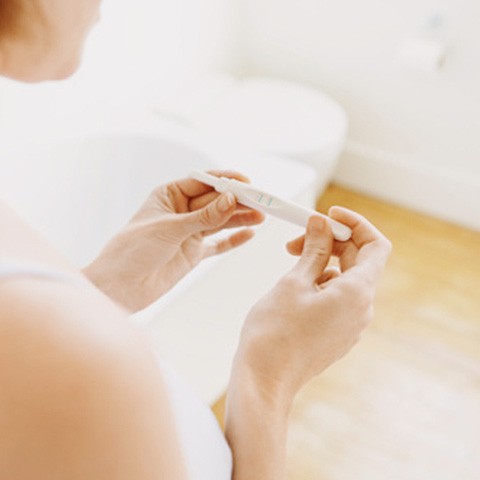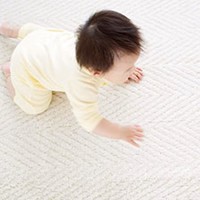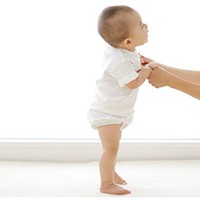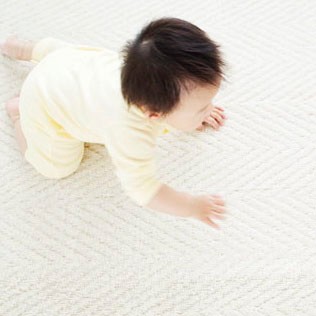First Time to Feel Baby Moving

What does fetal movement feel like? Is it always moving?
"Oh, it moved just now!" When you can feel the presence of the baby inside your belly clearly with your body, that is fetal movement.
Fetal movements contain a lot of messages from the baby.
Mama, get a good understanding of what the movement means!
What is fetal movement?
Actually seeing your baby with an ultrasound is one of the joys of pregnancy, but with fetal movement you can feel for yourself that, "There's a baby in here!"
That's a joy you'll want to feel as soon as you can.
So let's take a look at how fetal movement is felt and from when!
What is fetal movement like?
At about the 5th month of pregnancy, the baby's skeleton and muscles have developed and he starts stretching his arms and legs in the amniotic fluid and moving around actively. The feeling when his arms and legs bump against the mama's uterine wall is what fetal movement refers to. Fetal movement not only makes you really feel that there's a baby in your belly, but it's also an important tool of communication that tells the mama how the baby is doing.
Period when you'll feel fetal movement for the first time
In general, the time when you'll first feel fetal movement is said to be roughly between 18 and 20 weeks into the pregnancy. But the period when you feel fetal movement varies widely among individuals. The way you feel it also varies depending on the thickness of the mama's subcutaneous fat, the amount of amniotic fluid, and the position of the placenta, for example. So if you pass this period and you still cannot feel fetal movement, there's no need to worry. As long as you can verify through ultrasounds, etc., that the baby is growing fine, there's no problem, so you can relax.
Changes in baby's movements
The truth is, the baby is moving around long before mama can feel the fetal movement.
At about the 7th week of pregnancy, the nerves have developed, and starting around the 12th week the fetus starts sucking its thumb or fingers. Then after the 20th week, it starts moving around freely in the amniotic fluid! That's the time when mama starts feeling fetal movement.
Changes in how you'll feel fetal movement
Just as the period when you first feel fetal movement varies from one person to the next, the way it is felt also varies widely.
What starts as a tingly feeling like static electricity passing through your belly changes into a sensation like bubbles popping here and there, and then it becomes a more distinct sensation where you'll know for sure that, "Oh, he must be kicking!" Sometimes, you may also feel baby hiccuping.
When the movement becomes more intense, you may be able to see the baby moving just by looking at your belly.
Just before birth, the baby descends, and it's said that fetal movement may quiet down, but this, too, varies from one person to the next. Some babies move around in the belly right up until contractions start, so it doesn't apply categorically.
Interact with your baby through fetal movement
Fetal movement is the first communication mama has with the baby in her belly!
Through fetal movement, mama can check if the baby is fine or not and can talk with him.
The baby loves hearing mama talk and playing with her.
So enjoy the precious time you can interact with your baby in the belly.
Check fetal movement
Fetal movement is one means of making sure that the baby is growing fine. If you've been feeling fetal movement but then go for a whole day without feeling any, for example, it's probably good to go to the hospital and get checked just in case.
Also, once you get to around weeks 32-35 of pregnancy, baby's sleep time and wake time will settle into a rhythm. If you do a fetal movement count every day in which you record how long it takes for the baby to move 10 times, you can check more closely whether the baby is growing fine or not.
How to do a fetal movement count
1) Do it every day, after a meal or before going to sleep, when mama is relaxed
2) Lie down on your left side
3) Measure how many minutes it takes for baby to move 10 times
★If things seem different than usual, or if you could verify fetal movement before and now you can't feel it at all, it's probably a good idea to go to the hospital and discuss it just in case.
It's OK if there's a time with no fetal movement
Once you start feeling fetal movement, when there is none you may feel concerned. But baby has a time when he's sleeping in the belly and a time when he's moving around. Babies seem to sleep and wake on an approximately 60 minute cycle. If an hour goes by and you feel no fetal movement at all, head to the hospital.
Communication with baby
The fact that you became able to feel fetal movement is proof that baby has grown fine. Around the time you start to feel fetal movement, the nerves will be mostly developed and the sense of hearing will be completely formed.
Touch your belly, talk to the baby, listen to music, and try to communicate lots with the baby! When mama's action gets through to the baby and you can feel a response, there is no greater joy. We recommend the "kicking game," a kind of game in which you communicate with the bay through fetal movement. How about trying it at least once?
★Kicking game
In the kicking game, start out with simple things at first, and once you succeed, advance to the next step. While some babies may respond right away, others may take a long time to do so. Even if your baby doesn't respond, be patient! It is getting through to the baby just fine. Choose a place and time when you can relax, and do it patiently 2-3 times a day, for more than a month.
1) If baby kicks, pat that place on your belly while saying "Kick." In another minute or two, he'll kick again, so pat that same place while saying "Kick." When you do that, he'll start kicking the same place over and over.
2) After you've repeated the first exercise for several days, next pat a different place than where the baby kicks and say "Kick." When you do that, the baby will kick the place mama patted. If you repeat this for 1-2 weeks, the baby will start kicking in basically the same area where mama pats.
3) Once you get used to this, pat your belly two times while saying "Kick, kick." When you do that, the baby will respond by kicking two times. He'll start kicking back the same number of times as mama pats.
update : 19.09.2017
Our favorites feature uses your browser's cookies. To use this feature, please enable cookies. If you are using Safari on your iPhone or iPad, please turn off the Private Browsing Mode. If you clear the cookie, you also clear the Favorite that you chose.


























